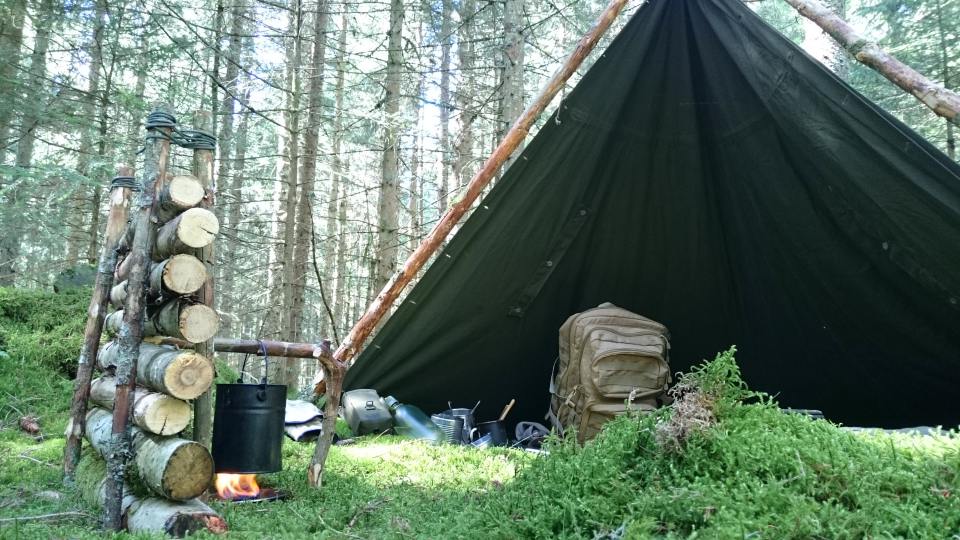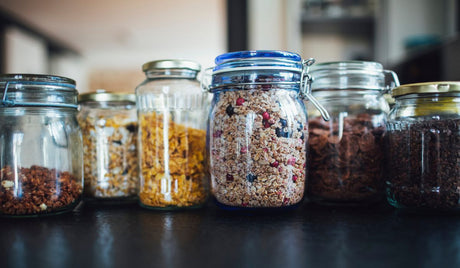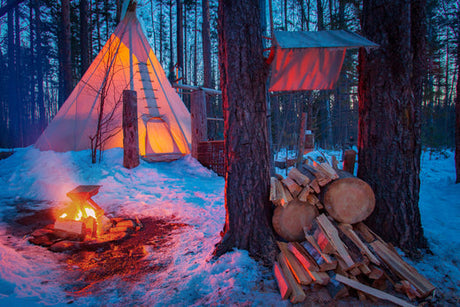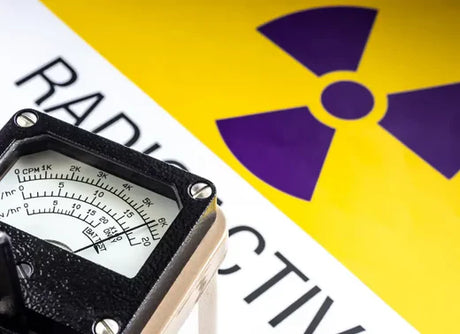Maximizing your productivity is a critical part of incorporating prepping into your life. Living a healthy lifestyle is the best way to be prepared for societal collapse. Your health is your number one survival asset. In this blog, we lay out our top daily habits for survivalists.
Daily habits that will increase your chances of survival during a post-collapse.
-
Increase your level of hydration
Chances are that you are not drinking enough water in your day. Our bodies are 60% water, and being properly hydrated is critical for the proper functioning of our brains and organs. Your performance begins to suffer at even mild levels of dehydration. You can increase your short-term memory, physical performance, mental alertness, and concentration by consuming around 2 litres of water per day. This amount will fluctuate depending on your level of activity and the climate. We also consume approximately 20% of our needed water from food, so it is critical to eat water and nutrient-dense foods every day. In addition, it is far healthier to drink small amounts of water over a long period rather than chugging an entire pint at once. Keep a water bottle with you at all times to encourage optimal hydration––bonus points if your water bottle doubles as a cooking or storage vessel in your bug-out bag.
Proper water consumption maintains your body’s ability to:
- Uptake and circulate nutrients and oxygen and remove toxins
- Thermoregulate
- Lubricate the internal organs
-
Prevent and reduce injury by maintaining cell suppleness
-
Start your day with a cold shower
Not only does it make you feel invigorated and alert, but beginning your morning with a cold shower has also been shown to have broad health benefits. Our bodies are incredibly adaptive and react in kind to stimulus. A cold shower can stimulate leukocytes (which help fight off infection), increase endorphins, positively affect metabolism, and increase circulation. The benefits of hydrotherapy are well known to athletes who use ice baths after intense exercise or training and in treating an injury.
For additional health benefits, using a bath or sauna as part of your daily practice is great for your health and well-being. It relaxes stiff muscles, encourages better breathing, increases blood circulation, reduces stress, and encourages cardiovascular health. In colder climates, a sauna can also improve the health of your skin, especially if you suffer from eczema or dry skin.
-
Develop a healthy diet that works for you
Healthy eating is about more than increasing your vegetable intake; each body needs different things to maintain optimal nutrition and performance. You can build your knowledge of proper nutrition through research, trial, and investing in a qualified nutritionist. It is essential to listen to your body and modify your diet for the activity level you participate in and support your specific body’s healthy functioning.
Broad principles for healthy eating:
- Eating a balanced diet with large amounts of fruits and vegetables
- Eating foods that are high in fibre
- Increase the variety of foods you consume
- Fermented foods such as sauerkraut and kombucha can benefit gut health and gut microbiome diversity
- Modify your diet to your climate and environment
- Learn to use every part of your food through homesteading skills
- Balance your calorie intake and output
- Practice moderation, not restriction
-
Choose nutrient dense foods when available
-
Learn how to practice mindfulness
Reactionary thinking doesn’t serve us very well. Being able to keep a calm mind in a wide array of situations, including survival scenarios, will increase your ability to survive. Stress negatively affects our health, so learning to manage it will increase your overall well-being, resilience, and aid in healthy bodily functions.
While you might think meditation is a joke, it is a key practice in overall discipline––which will help you survive in adverse conditions such as a societal collapse. Mindfulness has been shown to reduce blood pressure, regulate digestion, increase our immunity to illness, decrease the symptoms of Alzheimer's disease, increase awareness and focus, and reduce psychological distress.
Meditation can feel very uncomfortable at first, so you must be disciplined about your practice. Try sitting for 5-10 minutes in the morning and just focus on your breath. Your mind will be busy, and it will be hard to concentrate––this is normal. Try a guided meditation to help you through the process of learning.
-
Learn more about survival
Prioritize learning everything you can about your local area, first-aid, survival, current events, history, survival, homesteading, and more. Information is a resource that should be hoarded while freely available and accessible. Take an hour and learn something new every day, whether it’s an audiobook, joining a local foraging group, taking a first aid class, or listening to a podcast.
We recommend building a preparedness library that can help you access valuable information such as how to treat a wound or injury and forage.
-
Test your maximum strength and endurance
Run as fast as you can for as long as you can. Safely test how much you can lift. Test your ability to perform to your max. Only when you know how you perform can you truly grasp how much work you need to put into your physical fitness. Finding our maximum also clues us into our primal strength and ability, and you might just be surprised with how fast or far you can go.
-
Develop a regular fitness routine
Conditioning your body for performance is key for your survival. Aim for at least 30 minutes a day to engage in physical activity, whether it’s stretching, joining a rec league, lifting weights, or walking the dog. Incorporating fitness into your routine is necessary for your long-term health and wellness and your ability to survive. Try incorporating both strength training and aerobic activity into your week for optimal results.
Physical labour is an essential part of most human history, and there will be no way to evade it in a post-collapse environment. Having the strength and capacity to survive involves the long-term conditioning of the muscles and tendons. If you want to thrive in the grid-down, read our blog on survival fitness to start developing your fitness plan.
5 reasons to get active today:
- Increase your production of endorphins which makes you feel happier
- Maintain or find your ideal weight by boosting healthy high-density lipoprotein cholesterol and decreasing unhealthy triglycerides
- Exercise helps you sleep better
- Ward or lessen the symptoms of health conditions like anxiety, heart disease, diabetes, stroke, arthritis, and more.
-
Increase your libido
-
Build good sleep habits
A night of good sleep can be hard to find, but sleep is an essential component of a healthy body and mind. Sleep is vital for the functioning of your body and its ability to remain resilient and healthy. A clear head and strong body are especially crucial in bugging out when you need to do complicated, delicate, and highly skilled tasks like hunting, fishing, or evading a threat.
Your sleep goal should be to cycle through as many non-Rapid Eye Movement to REM cycles as possible. In N-REM sleep, you experience three sleeping stages as you progress towards REM. REM sleep is where your body is in an active state of processing information, decompressing, and healing your muscles and body tissue from the strain of your day. Trying to go to bed at a time that allows you to wake naturally after complete N-REM/REM cycles is critical to your performance the next day. Each cycle lasts around 90 minutes, depending on the person, and every consecutive cycle offers increased benefits and restoration to your mind and body.
Our sleep can be interrupted by:
- Stress and anxiety
- Depression and poor mental health
- Medication
- Physical health conditions
- Alcohol and drugs
-
Our habits before bed
5 ways to change your unhealthy behaviours
-
Join a team or group that can help motivate you
Finding a rec league, taking a cooking class, getting a group together to go hiking or backwoods camping, joining a canoe club, subscribing to a meal prep service, or finding an online community can all be ways to increase your exposure to healthy stimuli and create positive reactions to new and healthy habits. These are ways of maintaining accountability while you move through the tough process of developing a new habit and breaking old ones.
-
Adopt a dog
Pets are a great way to increase your fitness level and encourage you to develop healthier patterns. Dogs need to run and play consistently throughout the day. They can help you get outside and be active.
-
Keep track of your progress
Whether you are trying to get in better shape or eat healthier, monitoring your progress can increase your chances of success. Try using a fitness tracker or writing down new healthy recipes to motivate you.
-
Understand that change is slow
Changing the way you eat and exercise can be slow progress, so you must find ways to continue. There is no magic bullet to becoming healthier. All change is incremental.
-
Remove triggers that encourage bad habits
The best way to stop eating crap is to stop buying it. This methodology applies to all habit building and habit breaking. If you want to get more fit, find ways to encourage fitness in your environment (like taking the stairs or walking to work). Want to have a better sleep? Remove your screens and devices from your bedroom. Building healthy habits is all about shifting our environments to suit those habits.
Discipline can increase your survival and prolong your life.
It can be difficult to find motivation for building new healthy habits and behaviours. It is essential to your overall survival to discipline yourself to engage daily in activities that prolong your life and wellness instead of decreasing them. Discipline is an essential feature of a good prepper and a good bug-out plan. It will increase your overall quality of life and outcomes in a post-collapse world. Don’t forget, the strong survive, but the prepared thrive.










